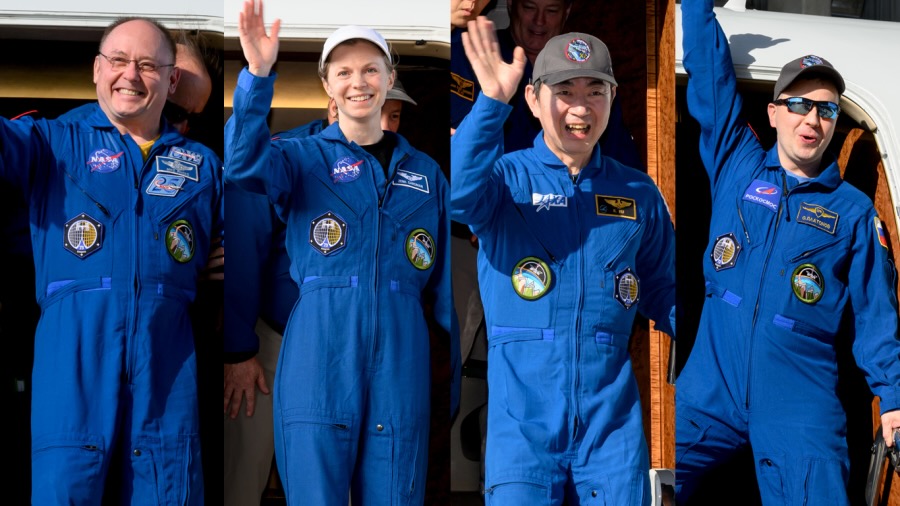First Bright Galaxies Formed Very Rapidly
Breaking space news, the latest updates on rocket launches, skywatching events and more!
You are now subscribed
Your newsletter sign-up was successful
Want to add more newsletters?
Thefirst bright galaxies in the universe apparently formed very rapidly, jumpingfrom just one or so in number to hundreds in the span of little over 1 percentof the universe'sage, astronomers find.
Usingeither the Hubble SpaceTelescope or the Subarutelescope on Hawaii, one of the world's largest ground telescopes, twoindependent teams of astronomers scanned the skies for the faint light emittedroughly 13 billion years ago by stars in the most distant visible galaxies. Theuniverse is roughly 13.7 billion years old.
Scientistscan discern the age and distance of a galaxy by looking at how much light fromit has shifted toward the red end of the spectrum. This redshiftmeasures how the expansionof the universe since the Big Bang has stretched the wavelengths of lightbefore it has reached us.
AstronomersGarth Illingworth and Rychard Bouwens at the University of California at SantaCruz discovered 500 or so bright galaxies around 900 million years after the Big Bang.But just 200 million years earlier, they and a team led by astronomer MasanoriIye at the National Astronomical Observatory in Tokyo could only confirm thepresence of one such galaxy, with maybe a few more candidates.
"Thatsuggests evidence for how dramatically things changed," Illingworth told SPACE.com."It was a pretty vibrant period in the life of the universe."
Investigatingwhen and how the first galaxies were formed helps shed light on when starsfirst forged the heavierelements, such as the ones that planets and people are made out of,Illingworth said.
Thesebright galaxies likely built up over time as smaller galaxies not detectable bycurrent telescopes collided and merged. Getting a better picture of galaxyformation will have to wait for more advanced telescopes, such as the JamesWebb Space Telescope, due to launch in 2013.
Breaking space news, the latest updates on rocket launches, skywatching events and more!
"Weare at the very limits of the current technology at probing the most distantgalaxies," Iye said.
Bothteams of scientists reported their findings in the Aug. 14 issue of the journalNature.
- Detached Meaning
- All About Galaxies
- Cosmologists Stretch to Explain Birth of Galaxies
- Nearest Galaxy Ripped from Another, Study Suggests
- Fat or Thin: What's in Your Galaxy?

Charles Q. Choi is a contributing writer for Space.com and Live Science. He covers all things human origins and astronomy as well as physics, animals and general science topics. Charles has a Master of Arts degree from the University of Missouri-Columbia, School of Journalism and a Bachelor of Arts degree from the University of South Florida. Charles has visited every continent on Earth, drinking rancid yak butter tea in Lhasa, snorkeling with sea lions in the Galapagos and even climbing an iceberg in Antarctica. Visit him at http://www.sciwriter.us
